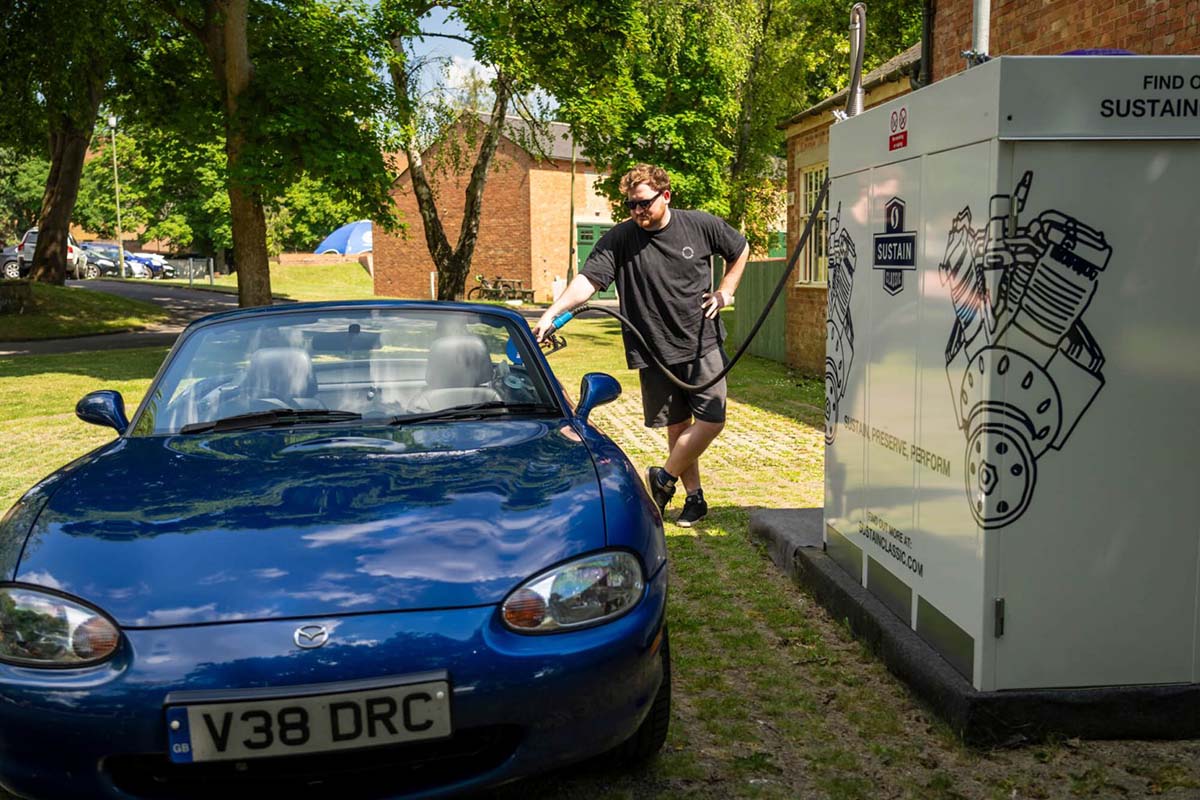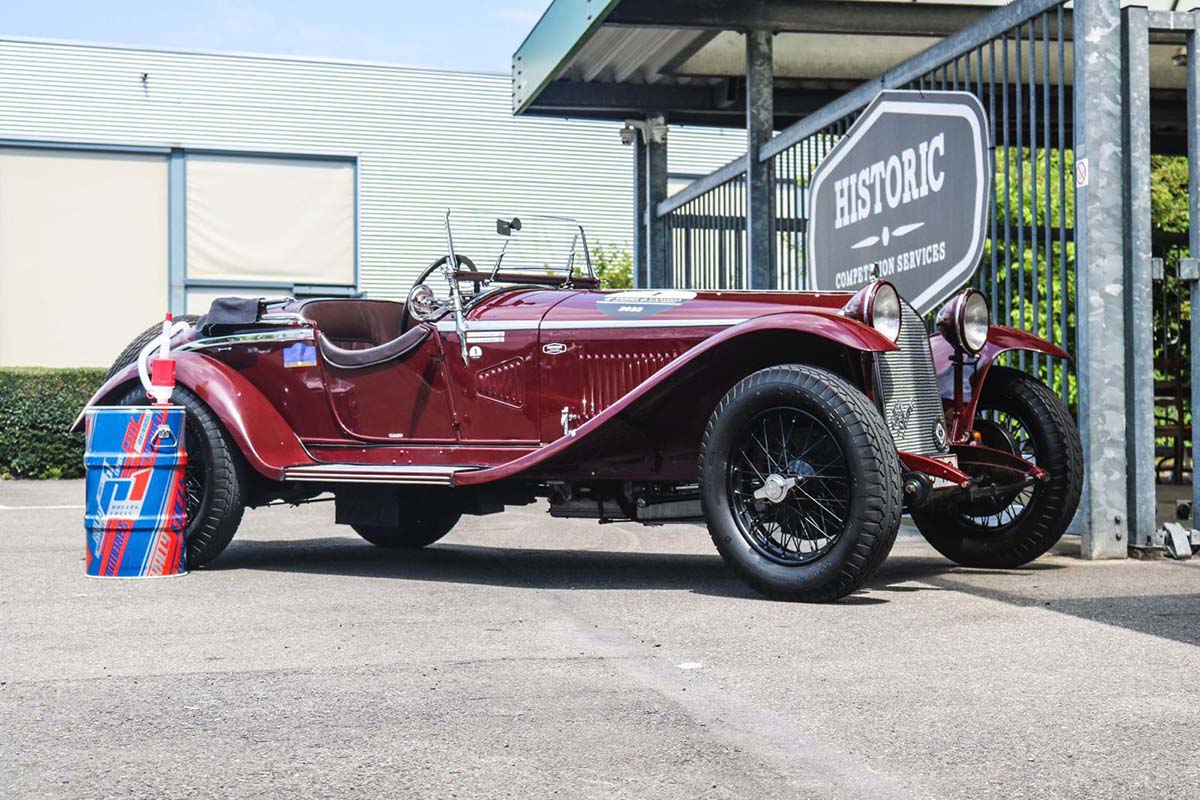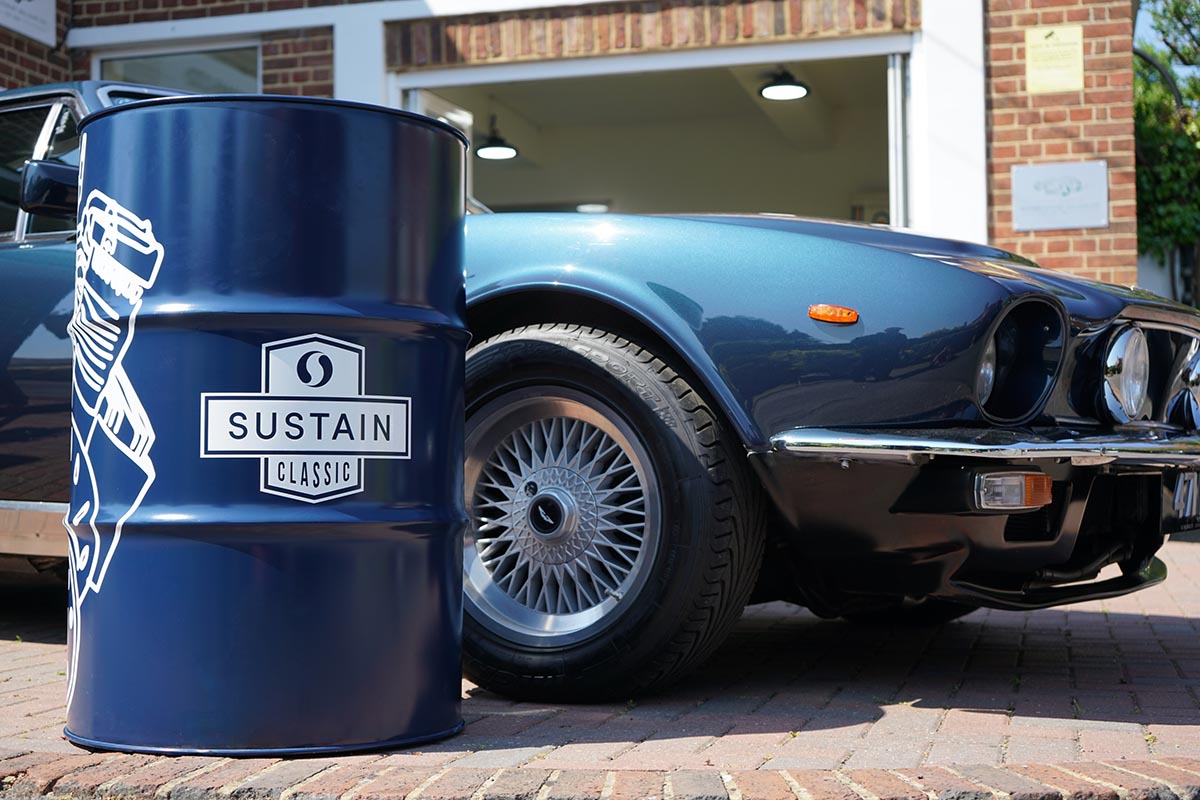Green fuel for classic vehicles
As the automotive industry becomes increasingly electrified, there is a sense of what happens to the existing cars, vans, motorbikes, trucks…? It’s not logical, ecological, or economical to scrap anything with an engine, and doing so would be to destroy a lot of history. It’s also not right to just replace every engine with an electric motor, but something needs to be done, and the classic vehicle sector is no different.
Counting the environmental cost

Credit: Sustain Mazda
The answer is likely to be in “green” fuels. There is a definite and necessary set of quotation marks around green, as all fuels have some sort of environmental impact. Even renewably generated electricity requires some materials to create the wind turbines, solar panels et al to create that power.
And fuel, by its very definition, needs to be burnt, which will create emissions, so everything is relative. But if we can run everyday vehicles on cleaner, electric-based power – whether that’s battery, hydrogen, or something else, we shan’t go into here – then those legacy models, particularly classic vehicles or those treated as such, can still be run, just in a greener manner.
And vehicles with engines are likely to become the equivalent of horses today – once useful workhorses, now typically kept by hobbyists. So the overall environmental cost will become minimal, with a small pool of vehicles in a few decades’ time actually burning stuff to be driven.
Cleaner fuels
Which is where the idea of greener fuels comes in. It’s not a solution to the issue of transport emissions, as burning a fuel will create some emissions at point of use, even if there are few created when manufacturing it, as oil-based fuels are.
There are two core types of these greener fuels. One is bio-fuel, which effectively uses an ethanol-base for burning, manufactured from plants. It’s something that has been used in Brazil for many years, and increasing amounts of ethanol are gradually being introduced to fuels found at the forecourt. Burning it creates emissions naturally, but these are off-set to a degree by the benefits the plants have made to the environment when grown. Manufacturers are trying to develop bio-based fuels to a degree that they can replace oil-based products entirely, though now they are often mixed in with petrol to lessen the environmental impact a little, while retaining wide-spread usage.
The other key type are termed ‘e-fuels’. These produce fuels using electricity – often generated using renewable sources – to convert carbon dioxide and water into liquid or gas that can be burnt. Instead of using biomass, these producers use carbon dioxide captured from the air or from industrial processes. These aren’t currently blended with fossil fuels, but are being used by motorsport to prove their worth. The World Rally Championship already uses a blend of bio- and e-fuels, while Porsche’s Supercup series runs on e-fuels – Porsche in fact is a big investor in the technology’s development. And Formula 1 will switch to e-fuels from the 2026 season onwards, coinciding with a change in engine regulations.
Impact on classic cars and other vehicles
Of course, many drivers will be wondering how green fuels will impact their classics. Over the past decades, we’ve already had a move away from four-star fuel, and recently there has been the move for regular unleaded to feature more ethanol, which can’t be run by certain models.
Until these fuels are widely available at conventional forecourts, there’s not an easy way to access them. Manufacturers will sell you barrels to refuel your vehicle, but these currently cost a little more than the equivalent fossil-based fuels. The costs are coming down as developments improve and production gradually ramps up however.

Credit: P1 Fuels
The good news is that most of these green fuels are being designed with the classic industry in mind. If your classic can run on petrol or diesel from the forecourt, then they will run on these fuels too. So there is nothing needed to adapt, no costs to incur to alter the engine or fuelling system… simply drop them into the tank.
Which is all great news for those who run classics. The requirement for ease of use is essential for wide-spread uptake – if it ain’t easy, few will put the effort in. So now we just need filling stations to stock it, and that will simply be a matter of time.

Credit: Coryton Sustain Classic
Until then, there are companies such as P1 Fuels and Coryton’s Sustain Classic which can be bought and used straight away, ‘green-proofing’ your classic today.

COMMENT